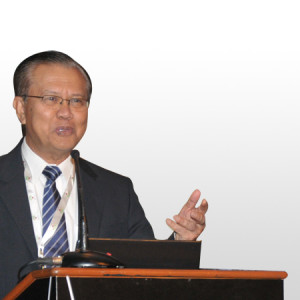Summation by Patrick Lombard
Patrick Levy was one of the lucky winners of the trip to Malaysia organized by MPOC to address the untruths about palm oil in France. During his time in Malaysia, among other activities, Mr Levy visited the Borneo rainforest and was given a guided tour of the Sepilok Orangutan Sanctuary. He was stuck by how friendly and welcoming the local Malaysian population is and was able to see for himself the oil palm’s contribution to poverty alleviation and the conservation efforts aimed at preserving our unique natural heritage for future generations. Read his summation of the trip here below.
Summation by Patrick Lombard
Learning firsthand from Malaysians about their culture and country
First I wanted to say that our experience was very rewarding in terms of the people we met: very warm and very approachable, thanks in part to the absence of communication barriers as we spoke English (although I must stay that while I hardly speak it, my understanding is much better).
Malaysians are very open and curious. We were able to witness this from the very first day when we met Tan Sri Dr Yusof Basiron, the CEO of MPOC with whom we were able to discuss different issues regarding palm oil, including its impact, the environmental aspects of the debate, and the position of the French media in relation to palm oil.
The Malaysian people are always smiling, they have kindness in their genes, and the local people were always very friendly towards us. Malaysia is rich in culture and its people live in harmony with three main communities: Malays, Chinese and Indian. What struck me the most in Malaysia is that people are very attached to their values, their traditions, their agriculture including the production and export of palm oil. It is important for the country that palm oil is maintained and developed in harmony with biodiversity, respect for the forest and their animals, particularly orangutans. It was a real pleasure to take part in a demonstration of the harvesting of the fruit of the oil palm tree.
I loved discovering the great forests and the complete conversation of ancient trees, at times thousands of years old, with height spanning over 80 meters; and to discover and see the many animals that still inhabit these forests including elephants, monkeys, crocodiles, and birds like the Hornbill. I also loved visiting the Sepilok Orangutan Sanctuary, a rehabilitation center for the safeguard of orangutans.
I also discovered in Malaysia the wealth in variety of local markets, open both day and night, with fruits and vegetables of all kinds such as the Durian, a fruit that at first seem repulsive but which is very delicious. And fish of all kinds and sometimes of very impressive sizes.
As for Malaysian cooking, it is very colorful and spicy, it stings the throat a little but it is delicious. We tasted many dishes of chicken, fish, soups, rice. But nothing was better than the grilled skewers we purchased at the market with peanut sauce. As a great lover of fruit, I really enjoyed myself with exotic fruits like papaya, watermelon, melons and pineapples.
Great emotions and great discoveries marked my stay and made it very pleasant, in particular the discovery of the flora and fauna from 40 meters above the ground thanks to suspension bridges and during night safaris to discover nocturnal animals.
There were also good times spent laughing while experiencing a foot massage by fish, where we could feel the tingling sensation of their teeth on our feet. Moments of relaxation thanks to cold and hot thermal baths, what a pleasure it was to relax in a very hot bath after sweating during the Canopy Walk.
I was very surprised to discover many cultural dance shows with beautiful costumes and also games where dancers interpreted a particular eagle dance. I was very pleased to have been able to test the blowpipe, a traditional weapon essential in Malaysia.
As a history enthusiast, I discovered a tragic episode of Malaysia’s past, which moved me, while visiting a war memorial. A monument that paid tribute to more than 2,340 soldiers who lost their lives during the 265 km trek between Sandakan and Ranau when Sabah was under Japanese control during World War II.
Small bonus of our stay was to taste in a small traditional village, a beetle larva, the taste was close enough to that of a coconut, a harder texture but finally easy to digest.
We finished our stay in Kuala Lumpur with a visit to the main monuments of the city, including the English quarter, the palace of the king, a tin mill …
It was a trip with new, very unique and diverse experience. Our hearts are full of emotions. I was very touched by the friendly locals and people who accompanied us during our stay. They showed us so many beautiful things and showed us the extent to which the conservation of fauna and flora is important to them and the extent to which palm oil is important for their country and for us as well, due to its important number of qualities.










Despite numerous hardships, she remained there for over 30 years and became an outspoken advocate for orangutans and the preservation of their rainforest habitat, which is rapidly being devastated by loggers , palm oil plantations, gold miners , and unnatural forest fires . Galdikas’s conservation efforts have extended well beyond advocacy, largely focusing on rehabilitation of the many orphaned orangutans turned over to her for care.
Kota Kinabalu holds a place of pride as Sabah’s most important port and Sandakan comes a close second. Sago, manila hemp, coffee, tobacco, palm oil and cocoa are the main exports here. Sandakan’s timber industry still exists, though on a small scale. Tourism is likely to take an important place in Sandakan’s future.